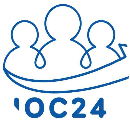Read the following passage and choose the correct word or phrase that best fits each of the numbered blanks.
Fathers in today families are spending more time with their children than at any point in the past 100 years. (1) ____ the number of hours the average woman spends at home with her children has declined since the early 1900s, as more and more women enter the workforce, there has been a decrease in the number of children per family and an increase in (2) ____ attention to each child. As a result, mothers today in the United States, including those who work part- or full-time, spend almost twice as much time with each child as mothers did in the 1920s. People (3) ____ raised children in the 1940s and 1950s typically report that their own adult children and grandchildren communicate far better with their kids and spend more time helping with homework than they did.
America's children are also safer today than they've ever been. An infant was four times more likely to die in the 1950s than today. A parent then was 27 percent more likely to lose an older teen to death.
If we look back over the last millennium, we can see that families have always been diverse. In each period, families have solved one set of problems only to face new challenges. What works for a family in one economic and cultural setting doesn't work for a family in another. What's helpful (4) ____ one stage of a family's life may be destructive at the next stage. If there is one lesson to be drawn from the last millennium of family history, it's that families always have to (5) ____ with a changing world.
People (3) _____ raised children in the 1940s and 1950s typically report that their own adult children and grandchildren communicate far better with their kids and spend more time helping with homework than they did.
whomwhichwhowhenHướng dẫn giải:whom + S + V: người mà … => thay cho từ chỉ người đứng trước, đóng vai trò tân ngữ
who + V / who + S + V: người mà … => thay cho từ chỉ người đứng trước, đóng vai trò chủ ngữ hoặc tân ngữ
which + V / which + S + V: cái mà … => thay cho từ chỉ vật đứng trước, đóng vai trò tân ngữ hoặc chủ ngữ
when + S + V: khi mà … => thay cho từ chỉ thời gian
“People” (những người), sau chỗ trống có động từ “raised” nên cần chủ ngữ => điền đại từ quan hệ “who”
People (3) who raised children in the 1940s and 1950s typically report that their own adult children and grandchildren communicate far better with their kids and spend more time helping with homework than they did.
Tạm dịch: Những người đã nuôi dạy con cái trong những năm 1940 và 1950 thường báo cáo rằng những đứa con và cháu trưởng thành của họ giao tiếp với con cái của chúng tốt hơn nhiều và dành nhiều thời gian giúp làm bài tập hơn họ từng.
Đáp án cần chọn là: C

